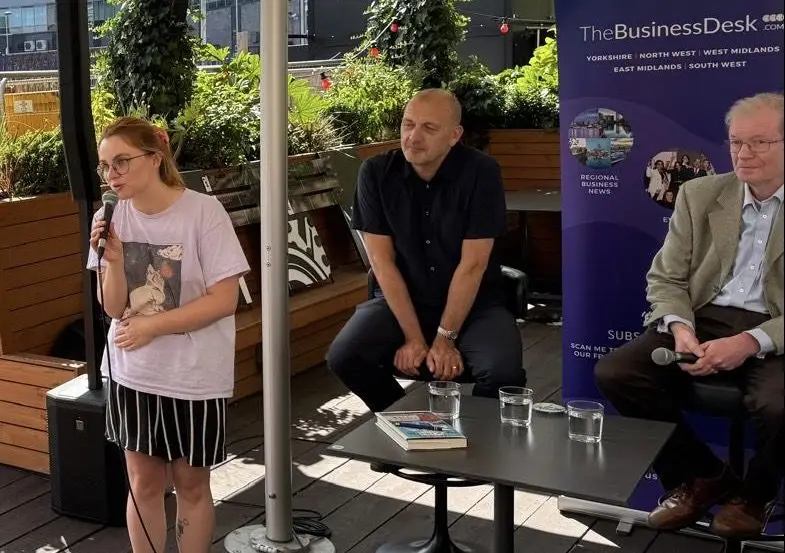The popular belief that Tony Wilson said, “This is Manchester, we do things differently here,” is widely accepted but incorrect.
At a summer lunch event, Brian Groom debunked this myth, providing intriguing insights into the real story behind the misattributed quote.
The Myth of the Tony Wilson Quote
Tony Wilson, the notable founder of Factory Records, is often misquoted as saying, “This is Manchester, we do things differently here.” However, there is no documented evidence supporting this claim. Instead, the quote has evolved into a marketing slogan, appearing in various commercial contexts such as hotel lobbies and political speeches.
The origin of this misattribution can be traced back to the 2002 film ’24 Hour Party People’, where actor Steve Coogan, portraying Wilson, delivers the line. The script, penned by writer Frank Cottrell Boyce, blends multiple literary references, creating a narrative that many have accepted as fact despite its fictional origins.
Unveiling the Truth
At a recent summer lunch event, author Brian Groom shed light on this widespread myth. He explained that while Tony Wilson was a charismatic and influential figure, he never actually uttered the famous line attributed to him.
Groom, who has extensively researched Manchester’s history, highlighted that Wilson often wove intricate stories that combined both truth and fiction. This blending of fact and legend has led to the enduring myth surrounding Wilson’s purported statement.
Literary Connections
The erroneous quote in question partly derives from a mix of other famous lines, specifically from F. Scott Fitzgerald and L. P. Hartley.
In the film, Wilson’s character reflects on different musical eras, referencing Fitzgerald’s notion that “there are no second acts in American lives,” a statement itself often debated. Additionally, the claim is linked to Hartley’s line, “The past is a foreign country; they do things differently there.”
These literary allusions were crafted into the script, attributing a level of profundity to Wilson’s character that, although in spirit, was not factual.
Cementing the Myth
Despite the fictional basis, the quote has been firmly embedded in public consciousness. It was even projected during Wilson’s funeral, demonstrating its lasting impact.
Such misattributions highlight how public figures can become avatars for collective cultural identity, with their words—and even misattributions—taking on lives of their own.
Brian Groom’s Insights
Brian Groom delved further into Wilson’s life, noting that he authored a book to accompany the film, calling it a ‘novelization’ filled with fictional embellishments.
Groom reiterated that Wilson himself admitted to sometimes blending fact with fiction, which has perpetuated misunderstandings about what he truly said and believed. This complex relationship between myth and reality adds layers to Wilson’s already multifaceted persona.
Additionally, Groom’s own book, ‘Made in Manchester: A people’s history of the city that shaped the modern world’, offers a well-researched account of Manchester’s development, contributing valuable insights to the discourse on Wilson and the city’s cultural legacy.
Public Perception vs. Reality
The narrative constructed around Tony Wilson serves as an example of how public figures can be mythologised. Wilson’s interest in philosophers rather than popular literary figures further complicates the misattribution.
Frank Cottrell Boyce, the writer behind the screenplay, even noted that Wilson would have been more influenced by thinkers like Derrida, Adorno, and Deleuze. This adds another layer of irony to the popular but incorrect quote.
Conclusion
The misquote attributed to Tony Wilson underscores how myths can form around charismatic figures. This case study exemplifies the intersection of media, memory, and myth-making.
Through careful examination, it is evident that while Wilson’s impact on Manchester’s cultural landscape is unquestionable, the famous quote remains a fascinating example of how legends are born and sustained.
Brian Groom’s revelations make it clear that understanding the truth behind popular myths enriches our appreciation of cultural history.
While the famous quote attributed to Tony Wilson is rooted in fiction, its widespread acceptance underscores the power of storytelling in shaping public perception.


